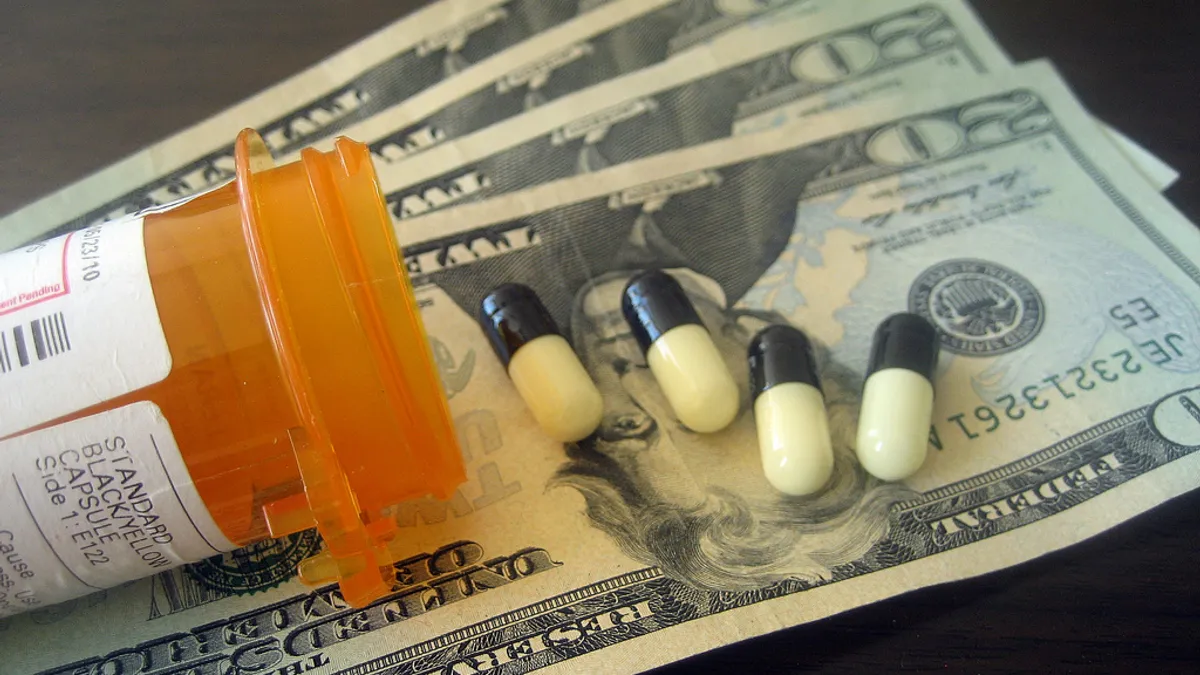Dive Brief:
- An 11% increase in pharmaceutical spending is forcing hospitals to carefully monitor drug usage to reduce waste, The Wall Street Journal reported last week.
- When drug prices soar suddenly, hospitals often foot the bills since their deals with insurers often cover fixed costs of treatment rather than medication. Drug monopolies coupled with stifled competition for cheaper alternatives is forcing hospitals to look to supply chain solutions to mitigate the rising costs.
- For example, drugs that previously served as staples on crash carts — the emergency response kit for hospitals — are now stocked and dispensed only upon need in order to avoid financial waste from expiration.
Dive Insight:
Hospital pharmacies are going lean. But in a situation where enhancing supply chain best practices helps but cannot affect the rising costs, what are the best workarounds?
Bulk purchasing is one option, as is relentlessly seeking generic alternatives. But deals with pharmaceutical benefit managers often preclude these solutions, so many hospital procurement departments are reportedly embracing comparative-effectiveness research to hone drug selections, and focusing on value-based deals while purchasing.
While the the American Hospital Association is seeking greater transparency from manufacturers regarding drug pricing, and advocating for shortened drug monopolies, it's unlikely to remedy the situation in the near future. On the plus side, adopting lean practices to reduce waste will improve long-run margins once the situation is remedied, on the condition it does not sacrifice their healthcare capabilities.












